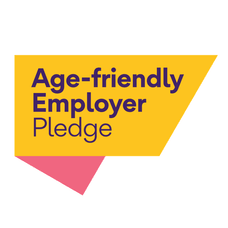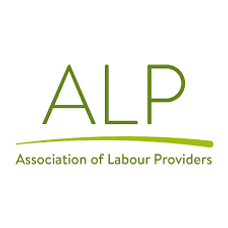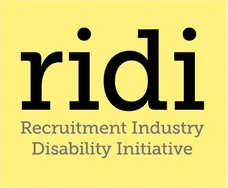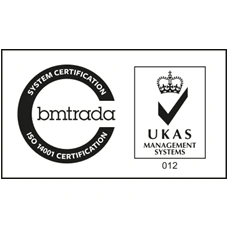We welcomed the Government’s recent change allowing businesses to transfer up to 50% of their unused Apprenticeship Levy to other employers. Our intention was to donate part of our levy to a charity supporting neurodivergent young people with education and employment opportunities. Unfortunately, current Levy rules make this impossible for certain programmes.
Many organisations cannot fully access available funds, leaving apprenticeship routes unattainable for people with neurodiverse conditions. For example, the charity we hoped to support runs Supported Internships, a structured, work-based programme for 16–24-year-olds with SEND and an EHC plan. These internships focus on substantial work placements with expert job coach support, but because they are not classed as apprenticeships, Levy funds cannot be used. Similarly, traineeships and other diverse training routes are excluded. We call on the Government to change funding rules so more neurodiverse individuals can gain skills, work experience, and successfully enter the UK workforce.
Why Neurodiversity Needs Greater Focus
The UK economy hinges on productivity and the optimum number of people being in work. Government departments, charities and businesses are working together to close the unemployment gap. It is important that supporting people with disabilities into the workforce is part of the solution, and efforts need to reflect people who are neurodivergent too.
In Q2 of 2023, the UK disability employment rate was 56.3% compared to 82.5% for non-disabled people[1]. For people with neurodiverse conditions, the employment rate is even lower. For example, just 3 in 10 (approx. 33%) of autistic people of working age are in employment[2].
The Buckland Review of Autism Employment, backed by the government and published in February 2024, called for businesses and government to work together over the next five years on initiatives aimed at “significantly improving” the autism employment rate. Adapting the rules of the Apprenticeship Levy could help to train autistic people and those with other neurodiverse conditions for skilled jobs, helping to shrink the disability unemployment gap.
Changes We Would Like to See to the Apprenticeship Levy
The Buckland Review found that autistic people receive a third less pay than non-disabled people, on average, and face a wide range of barriers to work. These barriers include unfair hiring practices, unclear processes and outdated attitudes by employers. We see similar challenges in the Apprenticeship Levy rules.
The minimum entry requirements vary depending on the level of apprenticeship but often reflect general education attainments, typically (A-C GCSE grades) in English or Maths, which are often not attained by people with neurodiverse conditions, stemming from a lack of targeted support, an unsuitable learning environment and incompatible assessments.
Funding from the Levy must be used for an apprenticeship programme only, many of which are delivered over 12 or 18 months, often not conducive to learning for people with neurodiverse conditions. They may need greater flexibility in their schedule, meaning less time or additional time to adapt to learning and working environments, and more support in managing their tasks to meet deadlines.
Restricting the funding to apprenticeships alone could mean that people in more mature age brackets miss out from support to build their skills for the workforce, particularly those with neurodiverse conditions. An estimated 15–20% of the world’s population presents a form of neurodivergence, but many people are undiagnosed, including mature unemployed people who have experienced challenges in many work environments[3]. Mature adults would benefit from the upskilling and support to employment from programmes such as traineeships, Supported Internships and Adult Education Budget courses that appeal to their learning and lifestyle needs. Widening the Apprenticeship Levy Gifting rules to these types of courses will help to reach people of all ages with neurodiverse conditions, further spreading the value of the Levy.
We are calling on the Government to address these three areas so that businesses can draw on the funding to design neurodivergent-friendly apprenticeships. Fundamentally, the Levy programme needs to be designed more strategically to align with national skills shortages, rather than local needs, and in collaboration with charities and interest groups that represent the communities struggling to gain access to work. Doing so will increase the impact of the Levy on both communities and the UK employment rate.
Benefits of Apprenticeships for Neurodivergent-Inclusion
Between 2014 and 2022, disabled workers left the workforce at nearly twice the rate (8.9%) of non-disabled workers (5%)[4]. As well as supporting more people with neurodivergent conditions into employment, apprenticeships can help them stay employed by offering a more supportive and holistic transition into the workforce.
A rethinking of what constitutes an apprenticeship could result in programmes being tailored to people’s differing learning requirements and provide a structured way to balance learning, working and relaxation, helping people develop skills in time management and understand their own needs.
Opportunities for Businesses Through Inclusion
Having a neurodiverse condition is classified as a disability under the Equality Act 2010, meaning employers are required by law to make reasonable adjustments within the workplace. Despite the law, a recent CIPD report highlighted that only 60% of those surveyed say that neuro-inclusion is a focus for their organisation[5].
Apprenticeships are only one way for businesses to widen opportunities for people with neurodiverse conditions.
References:
[1] https://www.gov.uk/government/statistics/the-employment-of-disabled-people-2023/employment-of-disabled-people-2023
[2] https://www.gov.uk/government/news/new-review-to-boost-employment-prospects-of-autistic-people
[3] https://dceg.cancer.gov/about/diversity-inclusion/inclusivity-minute/2022/neurodiversity
[4] https://www.gov.uk/government/statistics/the-employment-of-disabled-people-2023/employment-of-disabled-people-2023
[5] https://www.cipd.org/globalassets/media/knowledge/knowledge-hub/reports/2024-pdfs/2024-neuroinclusion-at-work-report-8545.pdf




























